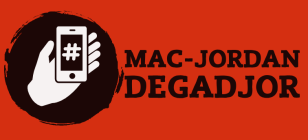ITU reveals the latest global ICT Development Index country ranking with the release of Measuring the Information Society 2017 Report
The 9th edition of ITU’s flagship annual Measuring the Information Society Report has been released today.
The Measuring the Information Society Report is widely recognized as the repository of the world’s most reliable and impartial global data and analysis on the state of global ICT development. It is extensively relied upon by governments, international organizations, development banks, and private sector analysts and investors worldwide.
This year’s report finds that concurrent advances in the Internet of Things (IoT), big data analytics, cloud computing and artificial intelligence (AI) will enable tremendous innovations and fundamentally transform business, government, and society.
This revolution will unfold over the coming decades with enormous opportunities, challenges, and implications. To harness these benefits, countries will need to create conditions that support the deployment of next-generation networks and service infrastructures. In order to track the growth and impact of these emerging ICT trends, new global indicators will need to be put in place.
“This year’s report shows that ICTs have the potential to make the world a better place and contribute immensely to the attainment of the Sustainable Development Goals,” said ITU Secretary-General Houlin Zhao.
“However, despite the overall progress achieved, the digital divide remains a challenge which needs to be addressed. This is important because information and communication technology and the digital economy have the potential to transform the lives of billions of men, women, and children. The digital revolution can transform nations — entire continents.”
“It is my hope that this report will be of great value to the ITU membership, particularly for policy-makers, the ICT industry and others working towards the building of an inclusive global information society”, said Brahima Sanou, Director of ITU’s Telecommunication Development Bureau, which produces the report each year.
“Fully harnessing the economic and social benefits of the digital revolution requires efficient and affordable physical infrastructures and services, more advanced user skills, and internationally comparable benchmarks and indicators to support enabling public policies.”
The ITU ICT Development Index (IDI) featured in the MIS report is a unique benchmark of the level of ICT development in countries across the world. In 2017, Iceland tops the IDI rankings.
It is followed by and two countries and one economy in the Asia and the Pacific region, and six other countries in Europe which have competitive ICT markets that have experienced high levels of ICT investment and innovation over many years.
The ICT Development Index has up to now been based on 11 indicators. However, recent developments in ICT markets have led to the review of those indicators. As a result of that review, in 2018 the index will be defined by 14 indicators that should add further insights into the performance of individual countries and the relative performance of countries at different development levels.
Measuring ICT Development
The latest data on ICT development show continued progress in connectivity and use of ICTs. There has been sustained growth in the availability of communications in the past decade, led by growth in mobile cellular telephony and, more recently, in mobile-broadband.
Growth in fixed and mobile-broadband infrastructure has stimulated Internet access and use. The number of mobile-broadband subscriptions worldwide now exceeds 50 per 100 population, enabling improved access to the Internet and online services.
In spite of the rapid expansion of ICTs, there are substantial digital divides between countries and regions. However, there has been registered progress in ICT growth by the Least Developed Countries, in terms of connectivity as well as the use of the Internet.
Globally, more than half of households worldwide now have access to the Internet, though the rate of growth appears to have fallen below 5 percent a year. There has also been significant progress in terms of bridging the gender digital divide across the regions.
Download the report here (pdf link) for more.
Image Credit: ITU Flickr









